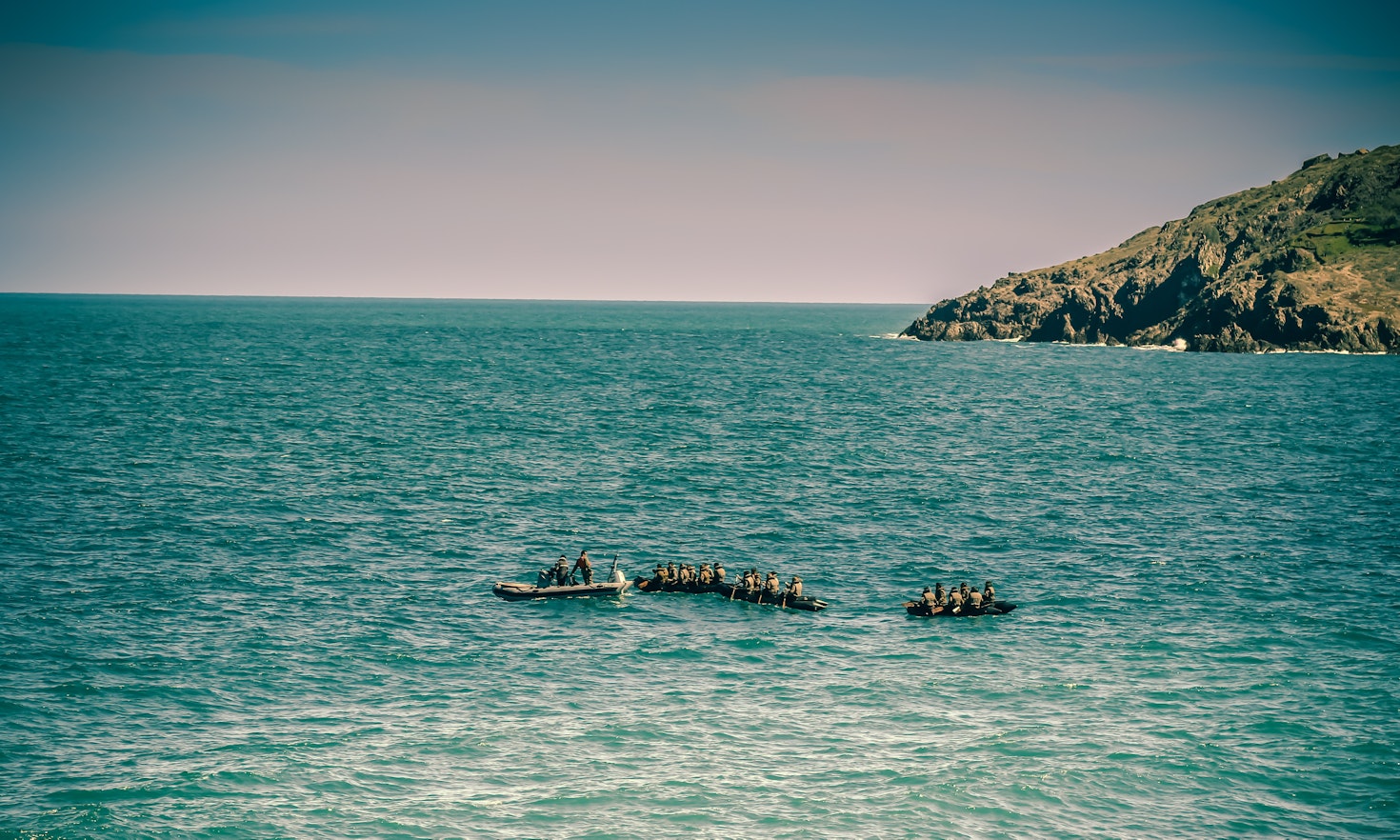
Convivenza sui Mezzi Pubblici: un Viaggio tra Integrazione e Confini Invisibili
 Anita Pittore
Anita Pittore
On the last day of 2022, for a split second, 113 people collectively let out a sigh of relief. The nightmare was over. They had survived the treacherous trip across the Mediterranean. They had fled a war. The ship, the Ocean Viking, was their saviour. But when they disembarked in Ravenna in the north of Italy, the people who rescued 113 people, were not treated like heroes. They were treated like criminals.
Over the past years the Italian government has taken many steps to dissuade and discourage rescuing migrants at sea. Their latest measure can be the toughest one yet. The latest law decree, n. 1/2023 on the management of migration flows, signed by the President Meloni on the 2nd of January 2023, is raising serious concerns among the NGOs that provide search and rescue operations (SAR) at sea. This controversial measure adopted by Meloni’s far-right government not only creates substantial obstacles for NGOs operating in the Mediterranean, it will risk the lives of thousands of innocent people. And to exacerbate the situation further, the decree is not even in line with international and EU law.
The decree requires NGO rescue ships to immediately carry out all initiatives aimed at informing the rescued persons of the possibility to claim international protection and to share all data collected with the relevant authorities. This provision raises some doubts about the responsible actors for processing asylum claims and the safeguards for asylum seekers. As stated by UNHCR, the State "under whose territorial jurisdiction or effective control an asylum-seeker finds herself" still represents the primary responsible for ensuring access to international protection. In cases of rescue operations, such responsibility often falls on the State of disembarkation. UNHCR outlines that the efficient and fair assessment of asylum claims must be carried out on "dry land" after all the disembarkation procedures have been properly finalised and the rescued people are in a safe place, especially those individuals with specific vulnerabilities and needs.
Placing the responsibility on the State makes sure that the highest legal and procedural standards concerning the assessment of international protection will be in practice applied and guaranteed. On the other side, as also emphasised by several NGOs, processing claims to international protection on board a commercial or other private vessels at sea is not appropriate or feasible, especially because of the lack of appropriate reception arrangements. Finally, it is interesting to note that the law does not make any reference to the possibility of claiming asylum to the “flag states” of the ships before disembarking in Italy, as initially proposed by the Italian government, as it could have been in breach of EU rules on the country responsible for asylum application (Dublin Regulation).
The most disputed point of the new decree lies in the provision that imposes NGOs to request a port immediately after a rescue has been made, and to reach the port of disembarkation assigned by the competent authorities “without delay” for the completion of the rescue operations. This provision in practice impedes NGOs from carrying out several rescues during the same mission, because they are now obliged to immediately reach the allocated port after the rescue operation, and ignore any other calls of distress. This rule violates some provisions under international law which set out a clear duty on ship captains to render assistance to all people in distress at sea. Article 98 of the United Nations Convention on the Law of the Sea states that “every State shall require the master of a ship flying its flag to render assistance to any person found at sea in danger of being lost; (b) to proceed with all possible speed to the rescue of persons in distress, if informed of their need of assistance […]”. The International Convention for the Safety of Life at Sea (SOLAS) reiterates that “the master of a ship at sea […] is bound to proceed with all speed to their assistance”. EU law also points out that “*Member States shall observe their obligation to render assistance to any vessel or person in distress at sea. […] They shall do so regardless of the nationality or status of such a person or the circumstances in which that person is found”. Both the international and EU rules clearly establish a legal obligation on relevant authorities and actors to provide assistance to those who are in distress and carry out multiple rescues if necessary. Moreover, the decree not only requires NGOs to reach the assigned port “without delay”, but also to not put in place any rescue operations that could impede reaching the port “promptly” . These requirements aim to limit the humanitarian efforts of rescue ships and avoid the transfer of rescued people from one humanitarian ship to another.
This unfavourable legal framework is also exacerbated by the recent decisions of the Italian government to grant ports in the central and northern Italy, which are very distant from the places of rescue and require longer journeys for the ships. This was the case for the Ocean Viking that rescued hundreds of people on the 27th of December, within the Libyan and Maltese Search and Rescue Zones. It was forced to disembark at the port of Ravenna, in northern Italy, after four days of navigation. This new practice casts serious doubts on its lawfulness in the light of international law, as the International Convention on maritime search and rescue establishes that “[…] the Party should authorize immediate entry into or over its territorial sea or territory of rescue units of other Parties […]”. Above all, this brutal practice poses a moral question of whether it is acceptable to leave a charity vessel with hundreds of rescued survivors and vulnerable individuals stranded at sea for several days for political and ideological reasons.
The violation of this “code of conduct” is punished with an administrative sanction up to 50,000 Euro as well as the impounding of the ship. These sanctions represent an additional obstacle to the work of SAR NGOs, and can jeopardize their effective involvement in operations in the Mediterranean and their capacity to save life at sea.
The Italian anti-rescue decree law should be placed in the broader context of the ongoing crackdown on NGOs and volunteers helping migrants in Europe and the political will to curb migration flows and strengthen border controls. Since 2015, researchers and civil society actors have highlighted an increasing proliferation of political and legal trends limiting the actions of humanitarians and charities aiding migrants in Italy and the entire EU.
This continuing trend against NGOs not only violates fundamental human rights and the rule of law, but also risks the loss of even more lives in the Mediterranean Sea. The role of rescue NGOs is crucial to save life at sea and fill the conscious void generated by EU agencies, institutions, and national governments in the central Mediterranean, that clearly fail to provide effective and coordinated search and rescue operations. In 2022, more than 1,200 people died in the Mediterranean, and the only thing certain with this new decree, is that many more lives will be lost at sea this year.

This content is licensed under a Creative Commons Attribution 4.0 International license except for third-party materials or where otherwise noted.

 Anita Pittore
Anita Pittore
 Giorgia Zogu
Giorgia Zogu
 Cholpon Beishalieva
Cholpon Beishalieva